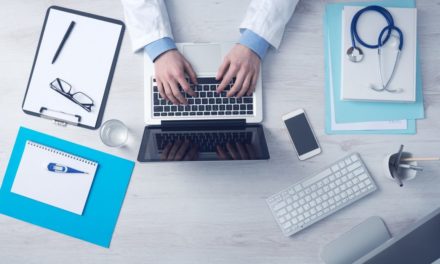For nearly a century, the American Heart Association has been at the forefront of cardiac research. The American Heart Association/American Stroke Association is not just a charity; the staff and volunteers are crusaders, innovators, scientists, and partners.
The American Heart Association will celebrate its 100th Anniversary in 2024.
Jill Lucero, the Regional Director for the American Heart Association in Northwest Louisiana shares that there is a lot more to the organization than people realize. This non-profit is dedicated to ensuring equitable health in all communities. Through collaboration with numerous organizations, and volunteers, they raise funds for innovative research, advocate for the public’s health, and share lifesaving resources. The AHA started with six cardiologists in 1924 so that they could take science and bring to the surface the causes of heart disease.
Funding research is the cornerstone of the American Heart Association’s lifesaving mission, and the organization is supporting research at the Center for Cardiovascular Disease and Science (CCDS) at LSU Health Shreveport with approximately $1.4 million. The AHA has invested over $4.6 billion in research since 1949, second only to the federal government. The knowledge that results from AHA funded research benefits millions of lives in every community and in every nation, and is translated into guidelines to provide the best, most updated care. Many life-saving devices and measures were initially funded and researched through the American Heart Association. Any healthcare provider who has ever provided or anyone who has been the recipient of CPR, pacemakers, drug-eluting stents, clot-busting medicines, or cholesterol inhibitors to patients, has benefitted directly from the impact of AHA research funding.
Lucero is passionate about teaching CPR in our community and the AHA is a world-wide leader in CPR training. The lifesaving skill of CPR recently received nationwide attention when Damar Hamlin of the Buffalo Bills collapsed on the football field bill on January 2 of a cardiac arrest. Lucero said the AHA is “committed to educating the public about Hands-Only CPR. Hundreds of these kits have been delivered to Louisiana schools to help districts ensure that every high school senior learns hands on CPR skills as well as the importance of an AED. This training will add thousands of life-savers to our community annually. By-stander CPR is important because 90% of people who experience an out of hospital cardiac arrest die. For every minute CPR isn’t performed, the person’s chance of survival diminishes by 10 percent.
“Heart disease is the number one killer of women and the number one killer of Americans. A woman dies every 80 seconds of heart disease.” Symptoms of heart disease are not as pronounced in women as in men. Women are our mothers, our sisters, our daughters, our spouses, and our friends. They give and give and give – often at the expense of their own health. The more a woman knows about heart disease, the better chance she has of beating it. Heart disease and stroke cause 1 in 3 deaths among women each year – more than all cancers combined. Women need to be more aware of the signs.”
Over the past 20 years, Go Red for Women (GRFW) has been changing the perception women in Northwest Louisiana have about heart disease and stroke. Throughout the year, we share life-changing stories of triumph and loss to inspire women (and men) to make changes to their own personal health. The movement strives to provide women with opportunities to prioritize and take charge of their own health; build communities that support and provide access to healthy choices; demand equal access to healthcare for all women and their families; and increase women participation in STEM in future generations. GRFW challenges women to know their risk for heart disease and stroke and to take action to live a healthier lifestyle. Through celebrations like the GRFW Luncheon on February 28th and National Wear Red Day, February 3rd, they are giving women in Northwest Louisiana the tools they need to overcome heart disease and stroke.
The funds raised through the campaigns remain in Northwest Louisiana and support local programs. The Chair for the 2023 GRFW campaign is Dr. Steen Trawick, CEO of CHRISTUS Shreveport-Bossier Health, with his Executive Leadership Team: Linda Biernacki, Ross Barrett, Jerry Montgomery, Emerie Gentry, Kristen Brown, Jessica Ruelas, Margaret Free, Dr. James Hobley, Kevin Murphy, Rhonda Anderson, Chief Clarence Reece, Stephen Wright.
Another activity is the NWLA 5K Heart Walk/Run, which is scheduled for April 29th at Festival Plaza. Lucero said the Heart Walk “is an opportunity where we ask companies and community groups to get their employees, families or members engaged so they can be a part of making a difference,” she said. There is no fee to register for the Heart Walk. This is an opportunity to celebrate heart and stroke survivors and for families to have a great morning activity. The morning includes a 5K walk/run; survivor lane, Heart walk team t- shirt contest, kids activities, show-sponsored by Shane Pons, wellness expo and special guest Miss Louisiana Jordan Green. The Chair for this campaign is Sarah Collier, Owner/Vice-President of Collier Investments DBA Manpower. Serving on the Executive Leadership Team, Jaf Fielder, Gregg Lott, Henry Burns, Shane Pons.
There are several areas that the AHA is committed to impacting: women’s health, eliminating tobacco and vaping; community needs and nutritional security, controlling blood pressure, heart attack & stroke, improving nutritional security, and building mental well-being.
The NWLA AHA has partnered with Community Foundation of North Louisiana, Southern University and LSU Health Shreveport to fund and mentor three Nursing students from Southern University-Shreveport to participate in our Historically Black Colleges and Universities (HBCU) Scholars program: Jayla Oliver, Lindsey Cawthorne and Shandrika Morris. Through their participation in the Scholars program, these students will study how the social determinants of health and other health disparities impact underserved communities. They will also participate in scientific research projects and present their findings at the end of the program. “This program plays an essential role in supporting the pipeline of HBCU students who will increase representation and equity in the health care field,” said Lonnie McCray, of Southern University Shreveport. “We are proud to support this next cohort of HBCU Scholars through our relationship with the American Heart Association, Northwest Louisiana, as it provides them with enriching academic and networking experiences to help them excel in their career paths.” According to the Association of American Medical Colleges, only 8% of medical students and 5% of physicians are Black and African American.
The students are being mentored by physicians at LSU Medical School, leading the team is Dr. Steven R. Bailey, MD, MS, Professor and Chairman Department of Medicine, Malcolm Feist Chair of Interventional Cardiology, Louisiana State University School of Medicine, Shreveport. His team includes Dr. Mabruka Alfaidi, Dr. Diana Cruz-Topete and Dr. Tanja Dudenbostel.
Lucero is working with Willis-Knighton Health System and Collier Investments-Manpower to increase and improve maternal health-care through a blue tooth blood pressure cuff loaner program with local and rural health clinics. “A big problem is high blood pressure, and we’re providing education, as well as a program whereby pregnant women, can self-monitor their blood pressure and report those results to their doctors. Lucero continued, “If somebody has high blood pressure, it’s especially important they learn how to reduce and manage it. It is important for everyone to know their numbers- blood pressure, A1C, and cholesterol. We have an underserved population that may not have the resources to get such a device, and so we are working with clinics to better serve the community.
We love creativity and art is used as one method to help stroke patients recover. The AHA Strokes for Stroke program provides an opportunity for stroke survivors to create a piece of artwork and the canvases are brought together for a traveling art exhibit throughout Caddo and Bossier Parishes. Strokes for Stroke recognizes local individuals who have shown invincible strength, resilience, perseverance, and aptitude in their fight against stroke. Creating images uses the physical and cognitive sides of the brain and making art combines the two. Engaging with art has shown early promise in assisting the patient with recovery issue such as verbal communication, depression and the physical pain associated with stroke.
Jill Lucero is passionate about the work of the AHA. “Engaging and educating the next generation is the best way to reduce heart disease.”









